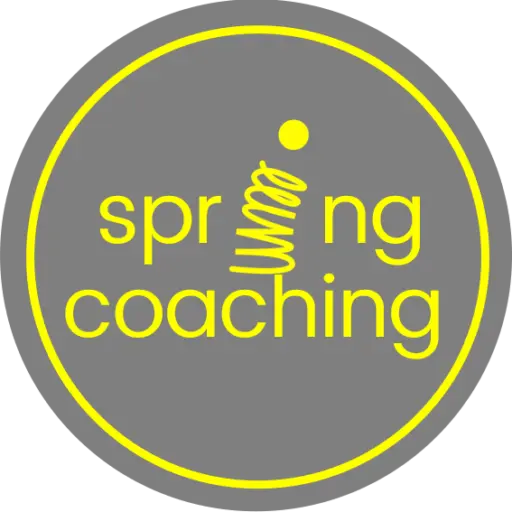A Hero’s How to Guide for Successful Goal Setting: Part One
Goal setting galore
A new year is upon us, a time when many of us plan to overhaul our lives by with goal setting. Needless to say, by February, these well-intended goals are a distant memory. Only a few brave heroes will remain steadfast and focused on theirs.
What sets these heroes apart from everyone else?
You may tell yourself that they’re different to you. That they have superhuman willpower, motivation and discipline but willpower and motivation will only get you so far. In reality, the real secret to their success is knowing how to set goals successfully and being up for a challenge.
The good news is that, like anything else, successful goal-setting is a skill that can be learned and goals by their very nature are a challenge (we’ll get into that soon).
In this trilogy, we’ll be sharing heroes’ secrets, starting with what goals are, why they require you to be up for a challenge, and why goals are challenges you’ll want to accept.
Part two will cover the two must-haves for goal-setting.
Part three will cover six common major mistakes that can stand in the way of victory.
Let’s begin at the start. What is a goal?
What is a goal?
I like the definition recently shared by Mel Robbins in her podcast, where she pulls from research from Dr Elliot T. Berkman, from the University of Oregon.
“A goal is any desired outcome that wouldn’t otherwise happen without some kind of intervention. In other words, a goal is a detour from the path of least resistance.” – Dr Elliot T. Berkman.
In other words, to achieve a goal you need to do something that you wouldn’t usually do. Working towards goals takes you out of your comfort zone. You have to be challenged. This creates friction and tension, which can be unsettling and uncomfortable. As humans, we’re motivated to avoid pain and find pleasure. At the heart of goal setting is discomfort, this in itself makes achieving goals challenging. You need to be courageous and rise to the challenge of being uncomfortable.
Why is it so hard to stick at goals?
‘It won’t happen overnight, but it WILL happen” – Rachel Hunter
Achievement doesn’t happen overnight, or from a single battle of picking a challenge over ease. It takes repetition of doing the tougher thing and never giving in because something seems too hard. Usually, this means saying “no” to an immediate reward, in exchange for a greater reward later on. This is otherwise known as delayed gratification, the basis of the famous 1972 Stanford marshmallow experiment that found those children who were able to wait it out for a bigger reward (more marshmallows) tended to have better life outcomes as adults.
To achieve greatness, requires a detour from the path of least resistance, repeatedly.
Over and over again, rising to the challenge of doing something hard for a greater good later on. Make no mistake, no matter the size of the goal, it takes a hero to say “no” to the easy path in order to say “yes” to the desired winning outcome.
At this stage, you may be saying “It’s all too hard. What’s the point of setting a goal if we’re destined to fail”?
You can do it, you are a hero
“You are a hero, be that hero every day” – Josie Askin, Spring Coaching
At Spring Coaching we believe everyone is a hero. Period. Our vision is for everyone to be their version of a hero every day. We do this by motivating and encouraging others to make conscious everyday decisions that take them a step closer towards the hero they want to be.
Is it easy? No, for the reasons outlined already, but it is possible. 100% you can do it!
It all starts with setting goals successfully and having the right tools and support.
Why are goals and goal setting so important?
“To inspire action you must start with WHY” – Simon Sinek
We love goal setting. We’d eat goals for breakfast if we could, yet as Simon Sinek so famously says, “to inspire action you must start with WHY”.
Two big reasons for going head-to-head with goals.
1. Goals give life meaning/purpose
In Viktor Frankl’s powerful and moving book “Man’s Search for Meaning” book he chronicles his experience as a prisoner in Nazi concentration camps during World War II. He explains how the lack of life goals and choices can warp our perception of time and livelihood. What got him through the harrowing experience was identifying a purpose in life and visualising that outcome.
Thankfully, we don’t need to go through the same experience to have a more fulfilling and purposeful life by setting goals.
“Trotzdem Ja zum Leben Sagen” | “Nevertheless Say Yes to Life”
2. Goals make decision-making and saying “no” easier
You know the scene where the super hero is trying to work out who to rescue first?
If your day feels like that, and you’re exhausted from the continual stress and mental dialogue of competing demands for your attention, having a goal is the answer. You’ll love the clarity and peace goals bring. For one of my clients, having goals, or what she referred to as her “golf balls” provides
“Certainty in myself. Being okay with myself is so much better – knowing who I allow to measure me (myself only), to live by my values and do the best I can – and that in itself is okay :-)” – Lia
When you have clarity of what desired outcome you want, life gets a lot easier. It’s like de-fogging your windscreen so you can see clearly ahead. When you have a clear vision, every decision around whether you say “yes” or “no” to a task, event or behaviour can be boiled down to two simple questions:
- Will doing this thing make me the hero I want to be?
- If I do this thing, what am I saying no to? (because there is always a trade-off)
Key messages
- Goals don’t happen by chance, you have to actually do stuff that you wouldn’t usually do to make them happen.
- Goals are hard to achieve because it requires picking the harder path over and over again to get the reward
- Goals give life purpose and provide clarity making decisions making easier.
Ready for the next episode where we’ll share the two things your goals must have to be successful?
Sign up to our newsletter here and you’ll be the first to hear when it is released.
About the author
Josie Askin, CEO of Spring Coaching, is a performance and productivity coach who works with driven leaders and entrepreneurs to improve their performance and productivity, by applying a focus on wellbeing.
Josie has nearly 20 years working in government, in a range of advisory roles. She became interested in the gaps between workplace performance and wellbeing, gradually building analogies between sport and business performance while gaining several coaching qualifications. Now she deals with clients under pressure from all walks of life offering tailored leadership performance coaching, workplace wellbeing programmes, workshops, speaking and facilitation.
She has just released a new programme The power of small steps, a curated online programme for busy people to help keep people motivated and accountable to accomplish goals in small, manageable steps.

